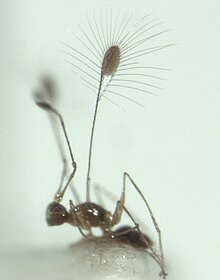rthom7
Member
- Aug 23, 2014
- 425
- 60
I'm thinking that a basic text in bact. and one in genetics would be invaluable to you. You ask detailed questions, and that leads me to think you know more about it than you do.
I'll back off on the next post (I'm a little busy tonight) and see if I can't make it clearer.
Brother Barbarian, the reason I ask we show each other the exact evidence on our posts, is to make it absolutely clear what we are discussing, and what we are presenting....here say and talk can be taken any way you like...like beating around the bush....if you have words about the evidence, let me see the evidence your talking about from the words of the papers you present as evidence, then let me see your comments...so I follow your reasoning and your authority.... otherwise if you don't do this, I am merely blindly in faith accepting what you say....
When I speak about the Bible, I present the Bible verse first and then comment with my human words...that way you read authority and my humble opinion...
People making a religion without an authority is mere hear say, and shaky ground.... I hope preachers don't do this...we all talk too much off the top of our heads...we also need to show the WORD from which our testimonies come...
So far you have not really presented any evidence from peer review papers (WORDS ) to back up anything you have said...so your comments have no power...I respect your comments, but they have no power because they lack authority....
I hope you see my point of view.... The Bible says, judge things by the Word and the Testimony...OK I respect your witness (testimony) about evolution, but also please show me the WORDS that back up your testimony....peer review papers that really add weight to your words....
Isa 8:20 To the law and to the testimony: if they speak not according to this word, it is because there is no light in them.
Shalom






